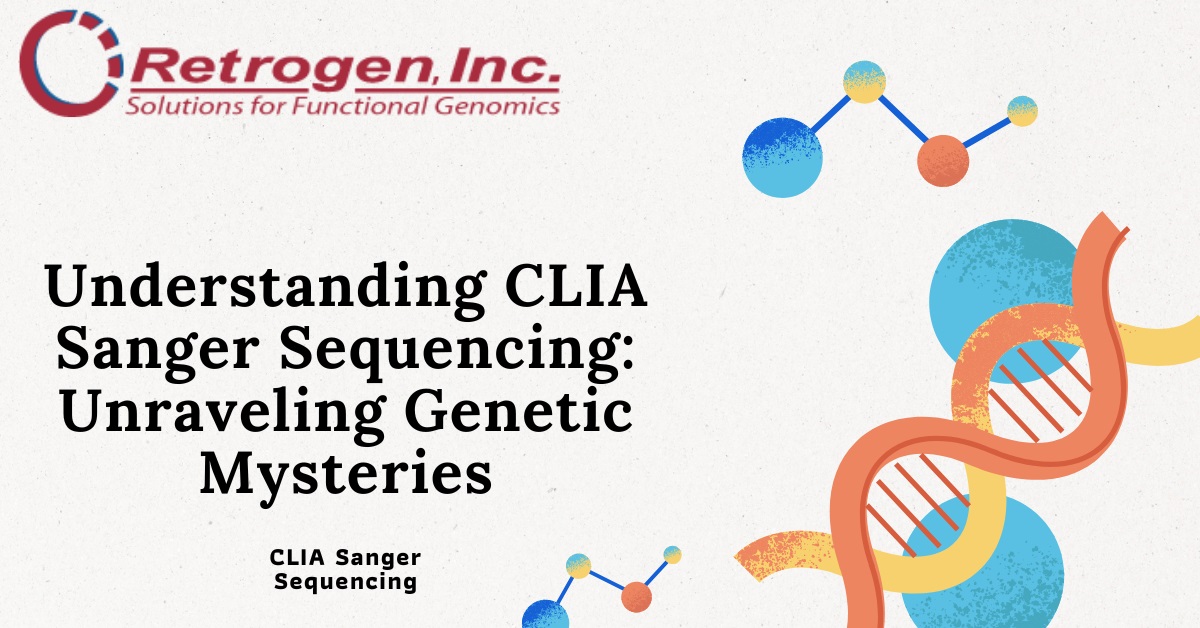
In the dynamic landscape of molecular biology, the CLIA Certified Sanger sequencing technique stands as a cornerstone in unraveling the intricate tapestry of genetic information. Certified by the Clinical Laboratory Improvement Amendments (CLIA), this method serves as a gold standard in genetic analysis, offering precision, reliability, and versatility in decoding DNA sequences. Let’s delve deeper into the significance and applications of CLIA Certified sequencing, elucidating its pivotal role in various realms of scientific inquiry and medical diagnostics.
Understanding CLIA Sanger Sequencing:
CLIA Sanger sequencing, accredited by the regulatory standards set forth by the Centers for Medicare & Medicaid Services (CMS), represents a robust methodology for DNA sequencing in clinical laboratories. Named after its inventor, Frederick Sanger, this technique enables the precise determination of nucleotide sequences within DNA fragments. By leveraging the principle of DNA replication with chain-terminating dideoxynucleotides, CLIA sequencing facilitates the sequencing of relatively short DNA fragments with unparalleled accuracy.
Applications in Clinical Diagnostics:
In the realm of clinical diagnostics, CLIA Sanger Certified Sequencing plays a pivotal role in identifying genetic mutations associated with hereditary disorders, oncogenesis, and infectious diseases. With its high sensitivity and specificity, this method enables clinicians to pinpoint mutations within the human genome, guiding personalized treatment strategies and prognostic assessments. From detecting single nucleotide polymorphisms (SNPs) to delineating complex genetic rearrangements, CLIA Sanger sequencing empowers healthcare professionals with invaluable insights into the genetic underpinnings of various medical conditions.
Advancements in Pharmacogenomics:
Moreover, CLIA Sanger sequencing finds widespread utility in pharmacogenomics, the study of how genetic variations influence an individual’s response to drugs. By elucidating genetic polymorphisms within drug-metabolizing enzymes, receptors, and transporters, this technique aids in tailoring medication regimens to optimize therapeutic outcomes while minimizing adverse reactions. Whether assessing drug efficacy, dosing requirements, or drug interactions, CLIA Sanger sequencing serves as a cornerstone in the era of precision medicine, fostering personalized approaches to patient care.
Research and Beyond:
Beyond clinical applications, CLIA Sanger sequencing remains indispensable in research endeavors spanning fields such as evolutionary biology, forensic genetics, and environmental microbiology. Whether reconstructing evolutionary histories, resolving forensic casework, or profiling microbial communities, this methodological stalwart continues to catalyze groundbreaking discoveries and deepen our understanding of the genetic fabric underpinning life’s myriad complexities.
In conclusion, Certified sequencing stands as a beacon of precision and reliability in the realm of genetic analysis, offering unparalleled insights into the intricacies of DNA sequences. Accredited by CLIA and embraced across diverse domains, this methodology exemplifies the convergence of rigorous scientific standards with clinical utility. As we continue to unravel the mysteries encoded within the genome, CLIA Sanger sequencing remains an indispensable tool, driving innovation, advancing medical diagnostics, and shaping the landscape of modern molecular biology.





